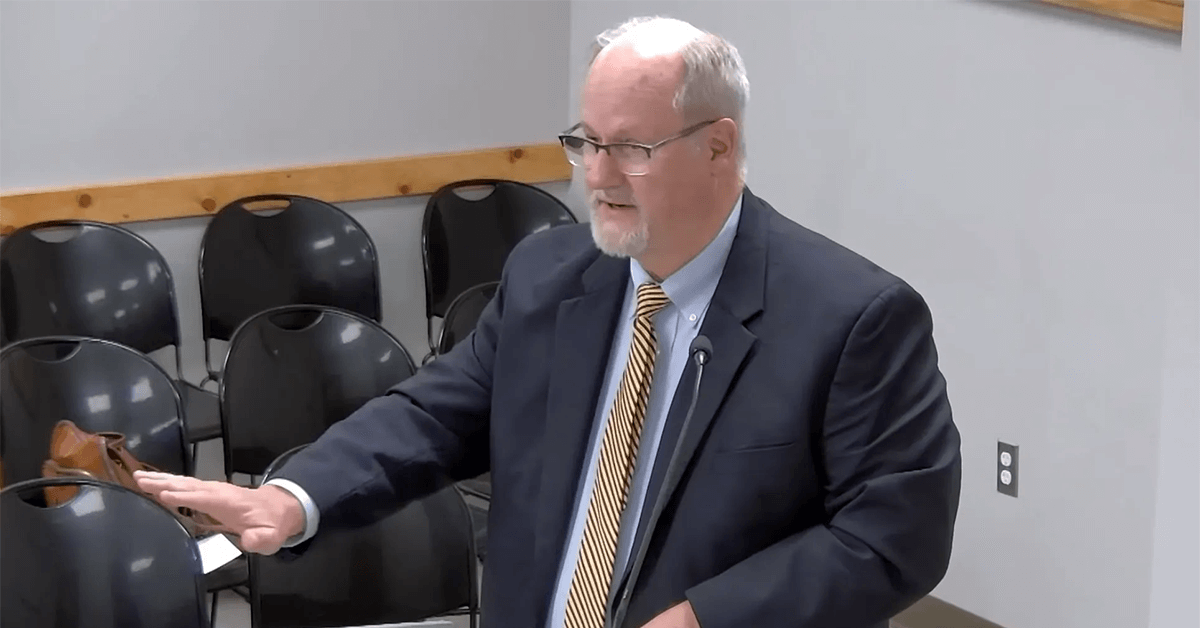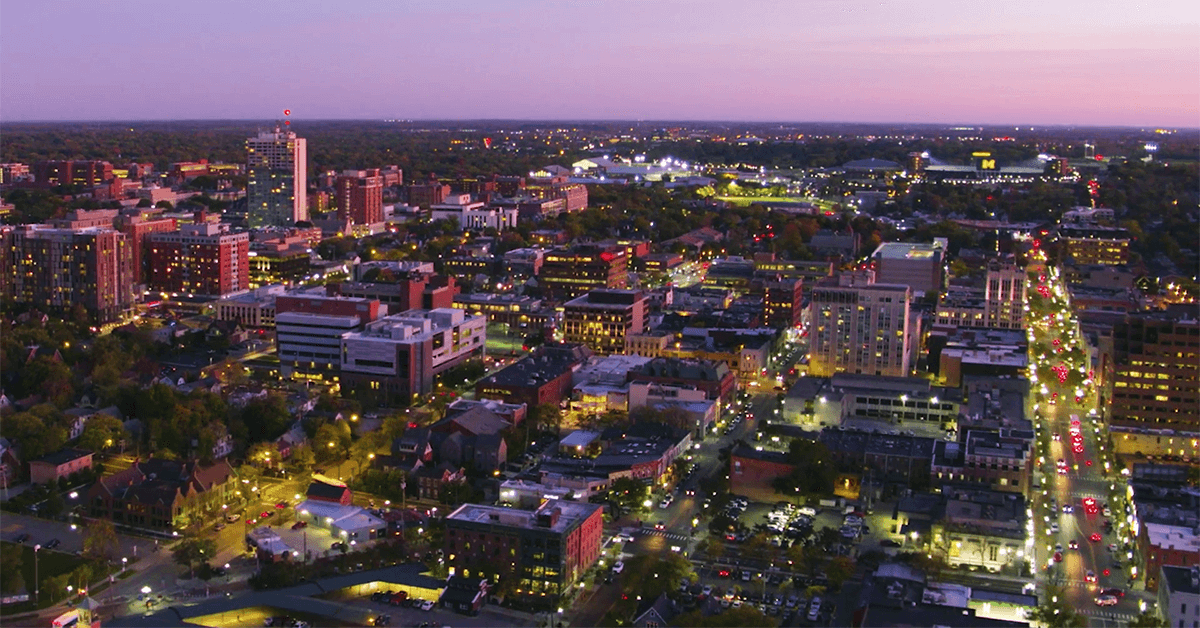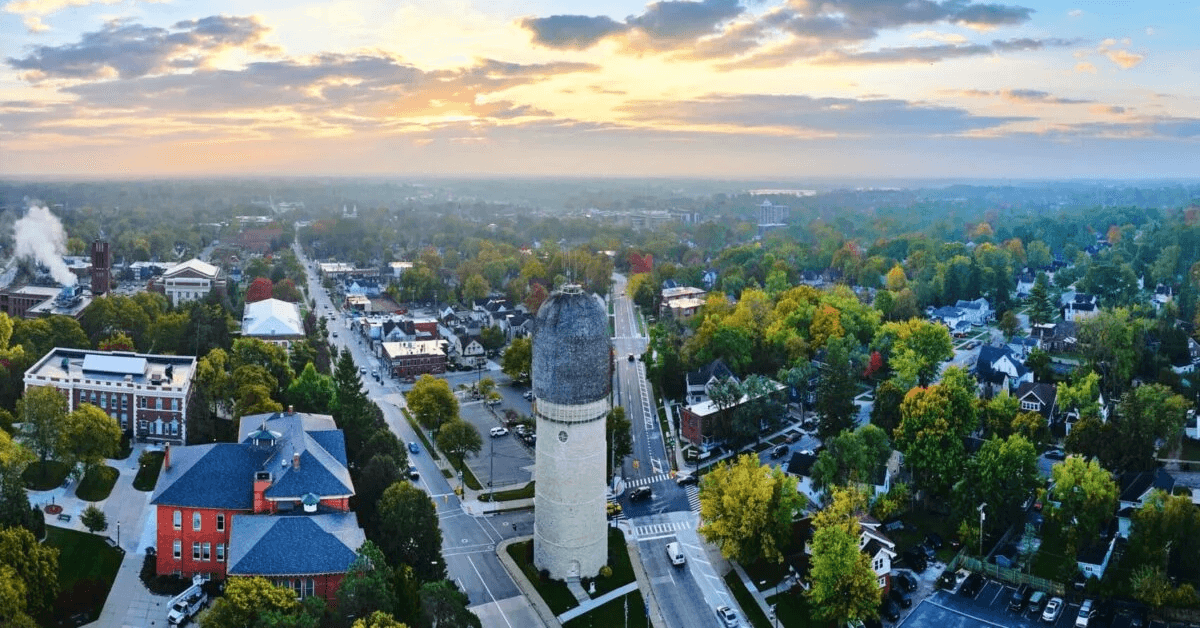CRA Extends Partnership with Metrc for Cannabis Tracking
The Cannabis Regulatory Agency (CRA) has once again partnered with Metrc, securing them as the vendor for Michigan's statewide cannabis monitoring system. This decision follows a thorough bidding process where the CRA evaluated potential vendors on the cost of service and their capability to meet all administrative requirements. A critical aspect of the evaluation was the bidders' ability to prevent fraud, abuse, and other unlawful activities within Michigan's commercial cannabis industry, along with providing tools for the effective administration and enforcement of regulations.
Initially, the CRA entered into a contract with Metrc on May 12th, 2017. The agreement was structured as a two-year contract with the option to extend it annually for up to five additional years. The newly signed contract, effective from May 7th, 2024, extends for five years with five one-year extension options available upon its conclusion.
Metrc, a prominent player in the cannabis tracking industry, is currently involved in 24 government contracts and serves over 400,000 users. These users include growers, testing facilities, dispensaries, state regulators, and law enforcement officials. Metrc's system integrates advanced software, radio-frequency identification (RFID) technology, a dedicated customer support team, and a secure database to meticulously track cannabis throughout its lifecycle—from growth and harvest to processing, testing, transport, and sale.
Since its implementation in Michigan in 2018, Metrc has monitored more than 1.6 billion events and recorded over $9.7 billion in sales through its system. The company's comprehensive tracking capabilities have been instrumental in ensuring regulatory compliance and maintaining the integrity of Michigan's cannabis market.
Michigan Cannabis Industry Seeks Congressional Action on Hemp-Derived THC Loophole

Michigan's cannabis industry is pushing Congress to address a growing challenge posed by a loophole in federal legislation. The 2018 Farm Bill inadvertently created a "Farm Bill loophole" by making hemp-derived THC federally legal. This loophole has allowed operators in states where cannabis remains illegal to produce and distribute products that mimic those made with full-THC cannabis, bypassing regulations in states like Michigan and shipping these products nationwide.
As Congress debates the new Farm Bill, a $1.5 trillion package that sets agricultural and food policy for the next five to six years, the future of this loophole hangs in the balance. The outcome will determine whether the loophole will be closed or remain open. The hemp-derived market, which includes non-intoxicating CBD products such as gummies and creams for sleep and pain relief, is estimated to be worth $28 billion and supports 328,000 jobs in the U.S., according to Whitney Economics, a cannabis industry analysis firm based in Oregon.
The debate pits hemp farmers from states like Indiana, who rely on the growing hemp industry, against regulated cannabis industries in states like Michigan.
Since Michigan's recreational cannabis sales began in late 2019, the state's industry has seen significant growth. However, many in the industry are advocating for the prohibition or strict regulation of hemp-derived THC products. They argue that the current situation allows untested products to be sold in convenience stores and online, often to minors.
"Exploitation of a Farm Bill loophole has created a market for intoxicating hemp-derived cannabinoids to be sold untested, often to minors," said Lance Boldrey, a partner at Detroit-based law firm Dykema Gossett PLLC, who helped design Michigan's cannabis legalization framework. "These products, marketed with marijuana strain names and similar effects, can be produced far more cheaply than regulated cannabis, impacting Michigan's regulated market."
The 2018 Farm Bill de-scheduled hemp as a controlled substance, allowing any cannabinoid derived from hemp—defined as cannabis with less than 0.3% THC—to be sold without federal intervention. This has enabled the creation of products that offer the same psychoactive effects as traditional cannabis but are not subject to the same stringent regulations.
For instance, Massachusetts-based Cantrip distributes hemp-derived THC drinks to 39 states thanks to the Farm Bill. In Michigan, hemp-derived THC is regulated like traditional cannabis-derived THC and is only sold in licensed dispensaries. However, consumers can still order similar products online from out-of-state companies, which face no oversight regarding product testing.
Dave Morrow, chair of Lume Cannabis Co., Michigan's largest cannabis operator, emphasized the need for regulation and testing of all THC products. "We're not anti-hemp or anti-hemp-derived cannabis, but all THC products need to be regulated and tested," Morrow said. "Unregulated products could harm consumers and damage the entire THC market."
Mike DiLaura, chief of corporate operations and general counsel for Madison Heights-based House of Dank, noted that the Farm Bill loophole undermines the state's legal market and introduces unsafe products. "Safe, tested products are the bedrock of our industry, and regulating intoxicating hemp furthers that goal," DiLaura said.
Online retailers like Oklahoma City-based Mood offer hemp-derived THC gummies for delivery to Michigan addresses, with minimal age verification. This practice, though technically banned by Michigan's Cannabis Regulatory Agency (CRA), continues due to the products traveling through the federal mail system.
While Lume Cannabis Co. advocates for regulations rather than closing the loophole, they see potential business opportunities in hemp-derived THC. Lume recently launched Buzzn, a THC beverage sold only in Michigan dispensaries, but they are considering opening a canning operation in another state to distribute hemp-derived THC beverages nationwide.
Congress is currently debating revisions to the Farm Bill, with competing interests lobbying for different outcomes regarding the loophole. U.S. Rep. Mary Miller, a Republican from Illinois, has proposed an amendment to exclude products with THC from protection, which would benefit state-regulated cannabis operators.
The U.S. Cannabis Council supports closing the loophole to create regulatory parity and facilitate eventual federal legalization of all THC products. However, others worry that banning all ingestible hemp products with any THC would eliminate most hemp products, including non-intoxicating CBD products.
With the Farm Bill's extension running through September, Congress must resolve this issue in the coming months.
Challenges and Solutions in Marine City's Cannabis Ordinance

At the May 16th Marine City Commission meeting, City Attorney Robert Davis provided an update on the development of the adult-use cannabis facilities ordinance.
Addressing concerns about delays, Davis reassured the commission, stating, "Concerns that we're kicking this issue down the road too often are unfounded. I think what you've been doing is you've been giving this matter strong consideration and I appreciate that effort."
Davis explained that under the Michigan Regulation and Taxation of Marihuana Act, if a community sets a cap on the number of cannabis facilities, it must establish a competitive process to select these facilities. He cautioned that for smaller communities like Marine City, such a process could strain local resources. Instead, Davis suggested allocating specific areas where these facilities could be permitted. "So if you're in that turf, you can have a facility. If you're not, you can't," he clarified.
The primary issue with competitive processes, Davis noted, is that they often lead to litigation. The commission has been exploring a property-oriented approach, considering setbacks from schools, residential areas, and other sensitive locations. However, Davis and City Manager Scott Adkins encountered challenges in identifying available properties that meet these criteria.
Davis emphasized that the commission cannot create a turf-based ordinance that fails to designate adequate space for facilities. The commission is also in the process of updating its master plan and zoning ordinance, which will provide an opportunity to designate suitable areas for cannabis facilities.
"We might come back and recommend that [the turf-based approach] is not going to work," Davis said, suggesting the creation of a specific zone for these facilities within the community. This approach would be integrated into the master plan and zoning discussions to establish a designated area for cannabis operations.
Davis reiterated that the city is not delaying the issue unnecessarily but is struggling to find appropriate properties within the desired setbacks. Commissioner Sean O'Brien sought clarification on the difference between the current mapping and the proposed zoning approach. Davis explained that the master plan outlines desired land uses, allowing the commission to select specific areas and incorporate zoning criteria to make the area work for cannabis facilities.
Commissioner Brian Ross proposed creating "green zones" that might not perfectly meet setbacks but could still accommodate facilities. Davis agreed, suggesting that additional restrictions could be placed on these zones to address any discrepancies.
The possibility of splitting lots to fit within setbacks was also discussed. Davis mentioned that minor adjustments could potentially make a significant difference in creating a meaningful ordinance. He also suggested considering variances for minor deviations from the established buffer zones.
Commissioner William Klaassen noted that the city has not received any voter-initiated proposals regarding cannabis facilities, mentioning that Algonac recently rejected such a proposal. O'Brien added that the commission's ongoing discussions might prevent the need for petitions, as residents see the city actively working on the issue.
O'Brien requested data from other communities that have implemented similar ordinances, and Ross asked for information on potential federal reclassification of cannabis as a less dangerous drug.
Ann Arbor Dedicates Cannabis Tax Revenue to Social Services in New Budget

On May 20th, the Ann Arbor City Council unanimously adopted a new city budget, designating $1 million from annual cannabis tax revenue for social services aimed at marginalized communities.
The allocation includes $500,000 to support the Rising Hope for Housing program, an increase from the previous year's $400,000. This program aids individuals disproportionately affected by the criminal justice system and the war on drugs, focusing on people of color and low-income residents. Services offered include mental health counseling, housing advocacy, and job training, all aimed at preventing homelessness and reducing recidivism.
"The Rising Hope for Housing program is transforming lives by offering essential, trauma-informed services like mental health counseling, housing advocacy, and job training," said Council Member Cynthia Harrison, D-1st Ward.
Additionally, the council allocated $250,000 for eviction-prevention efforts and another $250,000 for services targeting low-income youth. This year, Ann Arbor's share of Michigan's cannabis tax revenue amounted to over $1.5 million, with City Administrator Milton Dohoney setting aside $1 million for the council to allocate. The remaining funds will support various initiatives, including partnerships with the Shelter Association of Washtenaw County and Michigan Medicine, as well as community programming in a new affordable housing project on Catherine Street.
The adopted budget for the 2024-25 fiscal year, starting July 1st, includes $607 million in revenue and $564 million in spending across all funds. This budget necessitates a $2.8 million draw from cash reserves to balance the general fund, where expenses are projected to rise by $9.5 million, or 7.6%, to over $140 million. The increased costs include expanding the city's workforce from 829 to 849 full-time-equivalent positions, with new roles in parks, planning, and building departments.
Two new positions prioritized by city leaders—a director and a coordinator for a new economic development office—are included in the budget. However, council members were divided on a proposal to allocate an additional $100,000 from cash reserves for printed communications to constituents, which passed despite some opposition.
A separate proposal by Council Members Travis Radina and Ayesha Ghazi Edwin to prioritize $250,000 for crosswalk upgrades on Stone School Road was rejected. Council Member Erica Briggs, D-5th Ward, emphasized the widespread need for such improvements citywide, while Radina expressed pride in the overall budget, highlighting its commitment to community values, including sustainability and pedestrian safety.
Briggs and other council members anticipate that new investments in economic development will generate additional tax revenue in the coming years. Council Member Jen Eyer, D-4th Ward, highlighted the importance of the new economic development office for addressing the city's housing crisis.
City officials are also planning significant changes to zoning and land-use policies, necessitating $100,000 for external planning consultants. Eyer stressed the urgency of these changes to support housing growth.
"This is a balanced budget that accomplishes what our community demands — to improve basic services and enhance quality of life," said Mayor Christopher Taylor. "It does so with momentum, vision, and practicality."
Nonprofits Invited to Apply for Mecosta County Cannabis Excise Tax Funds

On May 14th, the Mecosta County Board of Commissioners established procedures for local nonprofit organizations to request funding from the state's Cannabis Excise Tax reimbursement.
The board approved an application form and outlined a process for nonprofits to request funding, which is now available on the county's website.
"The Mecosta County Board of Commissioners has directed me to place an application form for their use in allocating some of the Cannabis Excise Tax funds received from the state," stated County Administrator Paul Bullock in a news release. "The application is now posted on our website. The board will accept funding applications until June 14th."
Following the June 14th deadline, the board will review all submitted applications and schedule follow-up interviews with organizations being considered for funding, Bullock added.
In March, Mecosta County was notified of the state Fiscal Year 2023 adult-use recreational cannabis payments, as part of the Michigan Regulation and Taxation of Marijuana Act. The county is set to receive $886,295, approximately $59,000 for each of the 15 licensed retail establishments within its jurisdiction.
Interested organizations can complete an application online at mecostacounty.org/business/bids/sales or print and mail the application to Mecosta County Board of Commissioners, 400 Elm Street, Big Rapids, MI 49307.
Ypsilanti Implements Cap to Prevent Cannabis Market Oversaturation

Ypsilanti leaders have officially set a cap on the number of cannabis retailers in the city at 14. This decision was finalized with a 6-1 vote by the Ypsilanti City Council on Tuesday, May 14th. The sole dissenting vote came from Ward 1 Council Member Me'Chelle King.
The new ordinance follows a series of temporary measures aimed at curbing the influx of new cannabis dispensaries in the city. Existing cannabis business owners and members of the city's planning commission had advocated for a hard cap, expressing concerns that the market was becoming oversaturated.
Initially, the cap was set to be 13, but it was increased to 14 during the council's May 14th meeting due to a new application for a permit submitted before the restrictive measures took effect. City Manager Andrew Hellenga noted that denying this application could potentially expose the city to litigation, as the applicant complied with existing regulations when they applied. However, if this application is ultimately denied, the cap will revert to 13 under the new ordinance.
Previously, Ypsilanti had imposed a hard cap on the number of cannabis businesses allowed. This restriction was lifted partly to avoid legal challenges related to the allocation of limited permits. At the council's April 2nd meeting, City Attorney John Barr stated that the situation had evolved sufficiently to justify reinstating the cap.
In the interim, the council implemented zoning changes to reduce the number of available locations for new cannabis retailers and imposed an emergency moratorium on additional permits while deliberating on the appropriate cap level.
Concerns about market oversaturation were highlighted by Javier Valdez, owner of Depot Town Cannabis, who stated at the April 2nd meeting that continued market saturation might force him to close his business. Former council member and current Washtenaw County Commissioner Annie Sommerville also voiced worries that large cannabis enterprises were negatively impacting smaller, local businesses.


 Helpful Links
Helpful Links